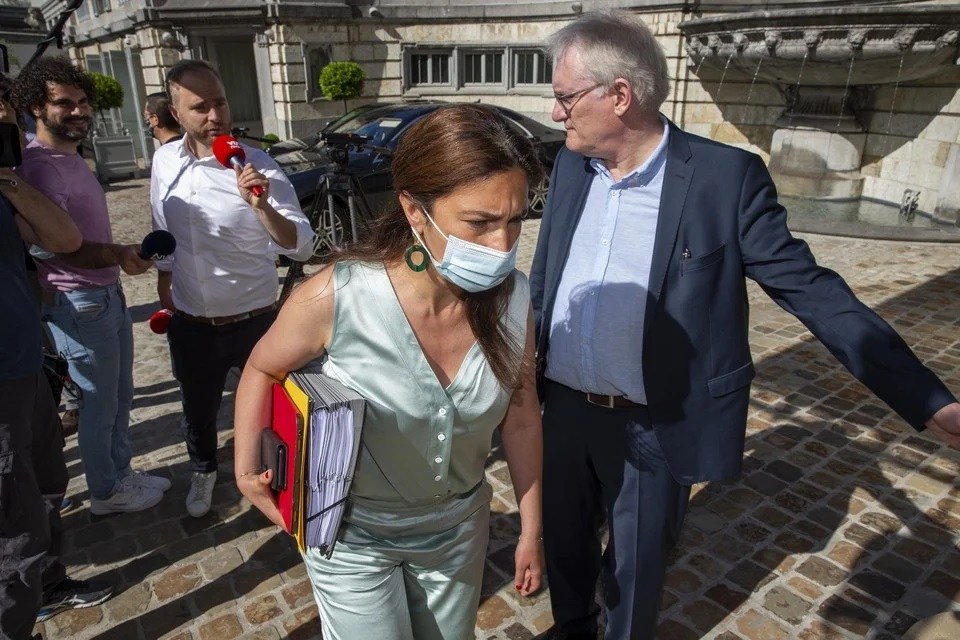The Flemish government is facing two major problems at present: a serious environmental disaster; and the political fallout which threatens to split the coalition.
The problem with the environment
During works to construct the Oosterweel connection – extensive road, bridge and tunnel works that will finally complete the Antwerp ring-road, soil samples in the commune of Zwijndrecht showed elevated levels of PFOS, or perfluorooctanesulfonic acid, a chemical hazardous to human and animal health.
As a result, the university of Antwerp advised the public living within a radius of 15km from Zwijndrecht not to consume eggs laid in their own or anyone’s else’s gardens.
The danger zone covers an area of almost 707 square kilometres, or about twice the size of Dublin. It takes in not only Zwijndrecht but also Beveren, Wijnegem, Brasschaat in the north and Kontich in the south.
The pollution is thought to have come from the 3M plant that produced the chemical there until the year 2002. The company is best known for its Scotch tape and Post-It notes, but also manufactured PFOS for use as a water-repellent. The soil in the surrounding area now contains dangerous levels of the chemical.
Internal documents have shown that 3M was aware in 1950 that PFOS accumulated in the blood of mice. Workers in Zwijndrecht were informed as far back as 1980 of the danger of build-ups in the blood. The production of PFOS was finally shut down in 2002, officially because the product could not be broken down safely.
Now, according to the latest reports, it appears that 3M Zwijndrecht is not Flanders’ only source of PFOS pollution.
In a written answer to a parliamentary question from Groen member Mieke Schauvliege, environment minister Zuhal Demir (N-VA) revealed that 26 companies operating on the banks of the River Scheldt have permits allowing them to release wastewater into the river. The limits are however constantly being breached, she said, and fish n the river have been found to have six times more PFOS in their bodies than fish elsewhere.
Meanwhile Essencia, the chemical industry federation, denied the minister’s claims.
“That substance has been banned for more than 15 years, and the companies mentioned in the media today have never even produced it. We are therefore very surprised at the reporting on this,” the federation said in a press release.
The problem with Zuhal Demir
The difference of appreciation between Demir and the chemical industry is not the only time she has stuck her head above the parapet in this context.
The PFOS problem first arose in April, when Demir gave a reassuring answer to questions about pollution. Since then, however, further problems have come up, and when the matter came up again in the Flemish parliament last Wednesday, she volunteered the idea of a commission of enquiry.
The idea sent a shock-wave through the government coalition, made up of N-VA, CD&V and Open VLD.
N-VA because they were taken by surprise. Although the 15km radius covers Brasschaat, where minister-president Jan Jambon is mayor and has his home, the issue of a commission of enquiry had not been discussed, either within the party or the government. Demir, he said, had been “too hasty” in her suggestion.
Later that same day, he said her position in the government “is not up for discussion.”
Meanwhile Hilde Crevits (CD&V), a deputy minister-president in the government, was less diplomatic.
"What I have to say is that Ms Demir will soon have been a minister for two years, and has not at any time brought up the problem of this case with our Flemish government,” Crevits said.
What she did not say, however, is that every Flemish environment minister all the back to 2004 – Kris Peeters, Joke Schauvliege, Koen Van den Heuvel and indeed Crevits herself (2007-2009) – has been a member of her own party.
This coming Wednesday, the plenary session of the Flemish parliament will debate the question of setting up – for the first time in 21 years – the proposed commission of enquiry.

